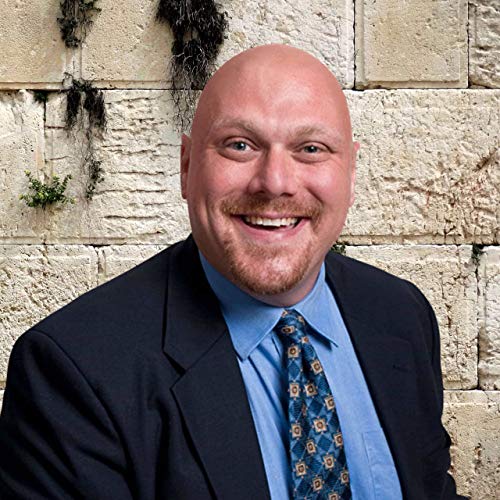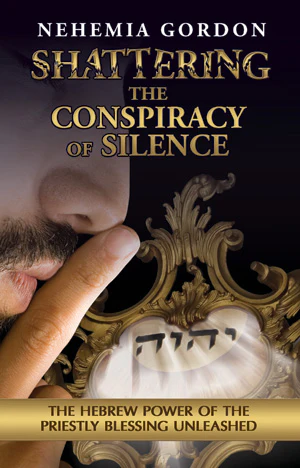Unveiling the Divine Name: Nehemia Gordon’s Groundbreaking Research on the Tetragrammaton (יְהוָֹה)


Unveiling the Divine Name: Nehemia Gordon’s Groundbreaking Research on the Tetragrammaton
In the realm of biblical studies, few subjects have been as intriguing and enigmatic as the quest for the true pronunciation of the divine name, often referred to as the Tetragrammaton. The Tetragrammaton, composed of four Hebrew letters (YHWH), represents the personal name of the God of Abraham, Isaac, and Jacob in the Hebrew Bible. Over time, the original pronunciation has been lost, giving rise to various scholarly hypotheses such as Yahweh, Jehovah, and more. One individual who has made significant strides in this field is Nehemia Gordon.
Gordon is an esteemed biblical scholar who holds a Masters Degree in Biblical Studies and a Bachelors Degree in Archaeology from the Hebrew University of Jerusalem. His extensive work includes translating the Dead Sea Scrolls, deciphering ancient Hebrew manuscripts, and authoring several popular books on the Hebrew roots of Christianity. He is a regular participant in interfaith dialogues, promoting understanding and unity across religious lines (source).
Gordon’s research took a monumental turn in 2018 when he and his team uncovered the 1,000th Hebrew Bible manuscript bearing the original name of God in Hebrew, complete with vowels. Before this discovery, the scholarly consensus leaned towards “Yahweh” as the pronunciation of God’s name, based predominantly on Greek sources and conjecture. However, Gordon unearthed previously untranslated traditional Jewish sources that unambiguously denoted the vowels of God’s name in Hebrew as “Yehovah”. This pronunciation bears resemblance to the English Jehovah, but is voiced with a “Y” and emphasis on the final syllable (source).
Despite the long-standing Jewish prohibition against uttering the divine name, which resulted in most Hebrew Bible manuscripts missing one vowel in the Tetragrammaton, Gordon was able to identify five Bible manuscripts complete with all Hebrew vowels, revealing the pronunciation “Yehovah” known to Jewish scribes of yore. This sparked a project to discover more supporting evidence, and in less than a year, Gordon located 1,000 additional Hebrew Bible manuscripts containing the full vowels “Yehovah” (source).
These manuscripts included two of the earliest known Hebrew Bible manuscripts with vowels, Russian National Library, Evr. II B 100 from 894 AD, and the Cairo Codex of the Prophets from 895 AD. Additionally, Gordon’s team found the vowels “Yehovah” in three manuscripts written using the lost “Babylonian Pointing,” which were discovered in the Cairo Genizah in 1896 (source).
Gordon’s findings offer a fresh perspective on the traditional pronunciation of the Tetragrammaton, challenging the widely accepted pronunciation “Jehovah” that emerged in the 16th century with William Tyndale’s translation of the Book of Exodus
(source). Tyndale’s rendition was derived from Hebrew texts where the rabbis had added the vowels for Adonai (meaning “my Lord”) onto the Tetragrammaton as a reminder not to utter God’s true name aloud. These translations eventually became the basis for the Old Testament of the King James Version of the Bible in 1611.
Even though the absolute certainty of the pronunciation of the divine name remains elusive, the significance of the Tetragrammaton in the Hebrew Bible and Jewish history is undeniable. By the United Monarchy around the 10th century BCE, Yahweh had become a highly important deity for the Israelites and Judahites. Personal names honoring YHWH became common, and by the mid-ninth century BCE, YHWH was recognized as the national deity of the kingdoms of Israel and Judah (source).
Through his groundbreaking research, Nehemia Gordon has added a new layer of understanding to the historical and religious dialogue surrounding the Tetragrammaton. His persistent effort to uncover the divine name’s true pronunciation has not only contributed to biblical scholarship but has also created a deeper connection for many with the God of Abraham, Isaac, and Jacob. His work continues to inspire individuals around the world, offering valuable information and insights into various aspects of Biblical studies and ancient Hebrew culture (source).
Nehemia Gordon’s work represents a significant contribution to the understanding of the divine name, pushing the boundaries of conventional knowledge and paving the way for new dimensions of understanding and connection with the God of Abraham, Isaac, and Jacob. His dedication to uncovering the truth behind the Tetragrammaton serves as a beacon for anyone interested in biblical studies, interfaith dialogues, and the profound mystery of the divine name.

